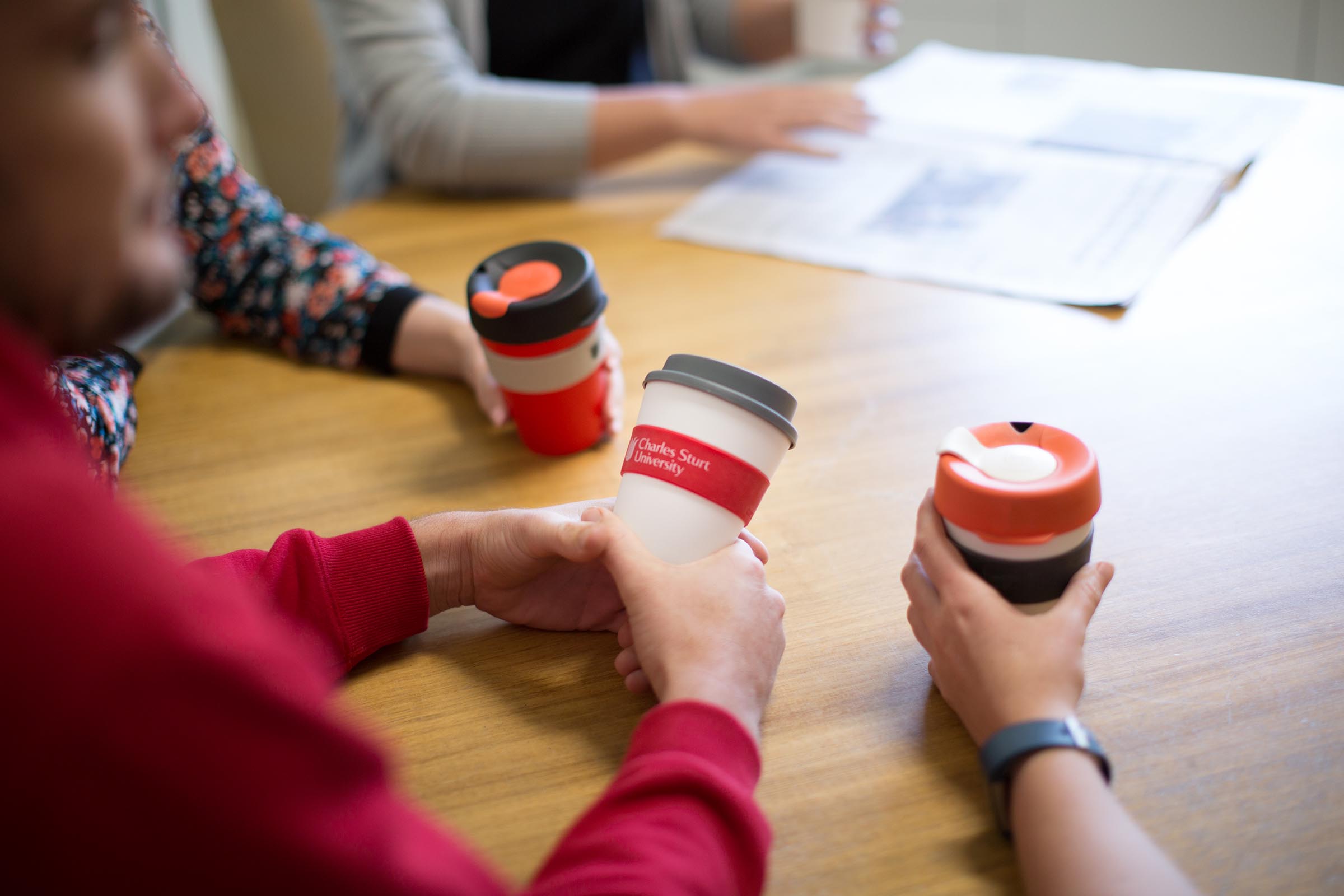Some of the greatest ideas come from the simplest conversations, right? When people come together to talk about concepts, visions and goals – inspiring things happen. And at Charles Sturt University, inspiring things happen every day. Case in point: Sustainability at Charles Sturt.
Sustainability at Charles Sturt is our commitment to a sustainable future for all. Established in 2008, it focuses on reducing the university’s energy and water usage, as well as promoting sustainability across all our operations.
In 2016, Charles Sturt University became Australia’s first certified carbon neutral university.
Not sure what that means? Let us explain.
When an organisation is carbon neutral, it means they’ve achieved zero greenhouse gas emissions. In order to become carbon neutral, organisations calculate their greenhouse gas emissions, reduce emissions as much as possible and then purchase carbon offsets or carbon credits equivalent to the remaining emissions. The result? All emissions are offset, and the organisation has achieved zero emissions or carbon neutrality.
Aside from killing it in the carbon neutrality game, Sustainability at Charles Sturt works tirelessly to promote environmentally friendly practices across all our campuses. Take a moment to learn how you can join the crusade for a cleaner, healthier environment.
#WarOnWaste
Sustainability at Charles Sturt initiated a university-wide WarOnWaste campaign for new students and staff settling into their university routine.
“The initiative aims to reduce the amount of waste going into landfill across our nine campuses across regional NSW and ACT”, said Ed Maher, manager of Sustainability at Charles Sturt.
“This is in keeping with our status as Australia’s first certified carbon neutral university and will contribute towards our carbon neutrality status,” said Mr Maher.
This builds on the achievements of the campaign which started in August last year. The first goal was to significantly lower disposable coffee cup waste, encouraging people to change their behaviour by bringing their own KeepCup or reusable mug for their daily hot beverages.
“After one week of the campaign, 38 per cent of coffee sales across all Cheers food and beverage outlets were in reusable cups, diverting 1267 disposable cups from landfill”, said Brett Russell, manager of Food and Beverage Services.
“The challenge is to normalise this behaviour in our new students,” said Mr Maher.
Sustainability advisers on hand to inspire and educate
Living on campus and looking for some guidance? Look no further than our newly trained sustainability advisers (SAs)!
Five new SAs will work with students living on campus to drive sustainability initiatives by connecting Sustainability at Charles Sturt with on-campus students and coordinating and encouraging participation in events like Orientation Market Day, Earth Hour, tree planting, ride to work, the Power Challenge and the Move Out Cook-up.
SAs will also inspire and educate on-campus residents, encouraging them to reduce landfill by eliminating plastic bag use, reducing food packaging and using free water at the university’s many hydration stations.
What can I do?
There’s lots you can do to contribute to our efforts to go green. To help you on your way to leading a greener lifestyle, we’ve put together some simple tips you can incorporate into your everyday life.
- Transport: Explore the different transport options available to you, aside from driving. Things like using public transport, cycling or carpooling with others can significantly reduce your carbon footprint.
- Waste: Do your best to reduce your carbon footprint by reducing the amount of waste you produce. Things like recycling, saying no to plastic bags, reducing the amount of packaging you use and helping to stop litter are simple ways to make a big difference.
- Energy: Help save energy and the environment. You can turn your computer off at the end of each day (at the power point is best), turn off the lights when you’re the last to leave a room and dress appropriately for the seasons to reduce heating and cooling costs.
Want to get involved? Explore Sustainability at Charles Sturt’s content hub and help us win the war on waste.

